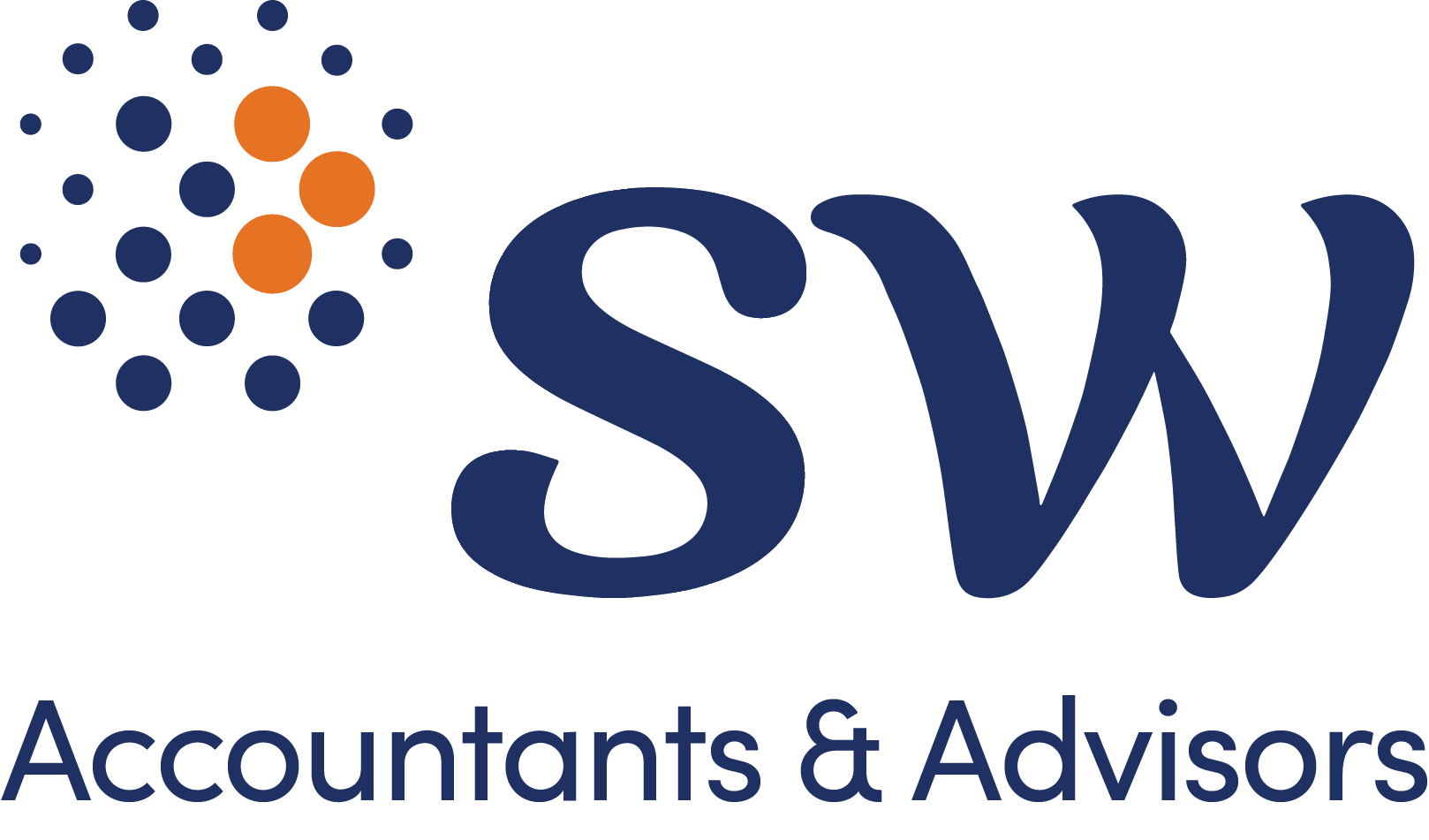
Join our 2025 Corporate Tax update seminar to ensure you are up to date with the latest developments in corporate and international income tax.
Our seminar will be delivered in an interactive format with SW expert Daren Yeoh, Tax Director, Antony Cheung, Senior Tax Manager, Yang Shi, Tax Director and Christine Krause, Director, Audit & Assurance Services. Our speakers will equip you with invaluable insights into the latest developments in corporate and international income tax.
This seminar will explore the following topics:
- Updates on Corporate and International Income Tax: Stay ahead with in-depth discussions on recent changes, including revisions to the thin capitalisation regime, debt creation rules, Pillar 2 implications, and nuances in dealing with intangibles.
- Transfer pricing update: Gain clarity on changes to the CbC reporting requirements, ensuring you’re well-prepared for any forthcoming adjustments.
- Analysis of Develops in Case Law and ATO rulings: Delve into notable developments in case law and ATO Rulings to enhance your understanding of current legal precedents and their implications for corporate tax practices.
- Other changes: Gain insights into the recent changes affecting corporate groups, including the updates to the Payment Times Reporting Scheme (PTRS).
SW Speakers

Daren Yeoh
Partner and Corporate & International Tax Director

Yang Shi
Partner and Transfer Pricing Director

Christina Krause
Partner and Audit and Assurance Services Director
At our annual Employment Taxes update for the Not-for-profit, Government and Corporate sectors, our experts delve into the ever-evolving world of employment taxes to help you stay ahead in this dynamic field.
Our experts provided an update on:
- New and topical developments including recent car parking case and ATO FBT compliance activity
- FBT recap and hot topics – including changes to hybrid electric vehicles and NFP exemption
- Global mobility – including flexible remote working arrangements and key employer considerations
- Payday superannuation
- Fair work changes – implications on employee v contractors
- Latest developments in payroll tax and audit activity
- Wage theft laws
- TASA change impact on clients
Expert speakers

Rahul Sanghani
Associate Director
SW
The NFP self-review return is a new annual reporting requirements for non-charitable NFPs with an active ABN. Relevant NFPs should lodge the return annually to confirm their eligibility to self-assess their income tax exempt status.
For NFPs with a standard year end of 30 June, the return must be lodged by 31 October each year. However, for the 2023-24 income year, the ATO has extended the 31 October deadline to 31 March 2025.
Below is a summary on how to prepare to lodge the return and the ways it may be lodged.
For details of our previous update click here.
Preparing to lodge the NFP self-review return
To prepare for lodgement, organisation should:
- review the organisations governing documents and
- prepare answers to the questions using the NFP self-review return question guide.
In reviewing the organisation’s governing documents, it must contain the appropriate not-for-profit clause and dissolution clause and set out that the organisation is operating for its not-for-profit purpose. The return contains 3 sections with the following key questions:
- What is the estimated annual gross revenue for the organisation?
- Choose a category best reflecting the main purpose of the organisation
- Does the organisation have and follow clauses in its governing documents prohibiting the distribution of income or assets to individuals or members?
- Does the organisation exist, operate and incur its expenditure entirely in Australia?
- Does the organisation have charitable purposes?
Ways to lodge the NFP self-review return
The ATO offers several methods for lodging returns, including:
- online
- through a registered agent and
- over the phone.
Lodging online
If you are an authorised contact for your organisation with access to Online services for business, you can lodge the return online. The ATO outlines the following process for lodging the return using this method:
- Select either:
- View next to the NFP self-review return in the Lodgements section of the For Action panel
- NFP self-review return from the Lodgements menu
- Select Prepare next to the return (you must prepare the oldest return first)
- Complete the mandatory details
- Tick the acknowledgments and declaration
- Select Submit
To note: Due to changes in office holders, many NFPs are unaware of who the authorised contact is for the NFP. It can be harder to change the authorised contact than to complete the NFP self-review return. We recommend completing ATO Form NAT 2943 and sending to the ATO to change the authorised contact for your NFP.
Lodging through a registered Tax Agent
If you’ve engaged a registered Tax Agent, they can prepare and lodge your organisation’s NFP self-review return through Online services for agents.
To note: Most NFPs do not have a Tax Agent as they have not had to lodge tax returns in the past. Whilst a lot of NFPs may have engaged a BAS Agent to lodge their Business Activity Statement a BAS Agent can not lodge the NFP self-review return.
Lodging over the phone
The ATO outlines the following process for those choosing to lodge over the phone:
- first review the list of self-review return questions
- prepare your responses to each question and have these with you when you call. You must refer to your governing documents to answer some of the questions
- phone the self-help service on 13 72 26 and select NFP self-review return lodgement
- enter the organisation’s ABN and a reference number listed on any letter we have posted to your organisation, such as Your annual self-review reporting obligation or the Lodge your NFP self-review return notice:
- the ABN will be listed as ‘Client ID’
- the reference number will be listed as ‘Our reference’
- follow the prompts to record your responses and submit the NFP self-review return questions.
Although these methods streamline the lodgement process, organisations with limited access to online resources may still face difficulties.
If so, lodgement of the return over the phone or through a registered agent can mitigate these difficulties.
Post-lodgement
Once the return is submitted, you’ll receive a transaction reference number to retain for your records. This will have a self-assessment outcome of either:
- income tax exempt or
- taxable.
Income tax exempt
If you successfully submitted your NFP self-review return and self-assessed as income tax exempt, the organisation has completed its reporting requirements for this income year. The NFP self-review return will need to be lodged in subsequent years.
If the return was lodged via Online services for business, the return information will be pre-filled for next year, making future lodgements easier
Taxable
If you successfully lodged your NFP self-review return and self-assessed as taxable, the organisation does not qualify for income tax exemption.
Thus, the organisation does not need to complete an annual NFP self-review return. Instead, they must lodge an income tax return or notify of a non-lodgement advice each income year.
How SW can help
We can assist with the preparation and lodgement of the return and assess your border eligibility for income tax exempt status. Please contact our Tourism, Hospitality and Gaming (THG) industry experts and not-for-profit experts.
Contributors
Discover the latest updates in tax effect accounting with expert insights into accounting for income taxes.
Our expert will provide you with topical content of relevance as well as an update on what’s new in tax effect accounting, including information about the following topics:
- Key tax matters to consider in your TEA calculations
- Calculation of tax balances
- Equity accounted entries
- Business combinations
- Tax accounting for tax consolidated groups
- Accounting for tax uncertain tax treatments
Session details
- Date Thursday 28 November 2024
- Time 9.30 – 10.30am (AEDT)
- Delivery Online (Zoom)
Your speaker:

Andrew Wu
Manager
SW
The ATO has released the first Research & Development Tax Incentive (R&DTI) Transparency Report for 2021–22, detailing which companies claimed the R&DTI.
The ATO has published the first R&DTI Transparency Report covering the 2021–22 income year. The R&DTI program aims to strengthen innovation by providing tax offsets for eligible R&D activities. To promote greater transparency and voluntary compliance, a legal requirement for publication of R&D data came into effect in July 2021, following reforms to the policy and administration of the R&DTI program.
The report outlines the benefits received by R&D entities and seeks to raise public awareness on which companies benefit from the R&D Tax Incentive. It also aims to encourage voluntary compliance with the program’s requirement.
The R&DTI is one of Australia’s key programs to drive innovation, offering a tax offset to catalyse companies to engage in R&D activities they may not undertake due to the financial risks involved. This can allow companies to invest more in innovation, boosting their competitive edge while contributing to Australia’s economic growth.
Under the new legislation, the ATO is required to publish R&D data 2 years after the end of the financial year that the data relates to. The newly released transparency report offers key insights into the companies and industries leveraging the incentive to help invest in R&D activities:
- 11,545 companies claimed R&D expenditure in the 2021–22 income year, amounting to $11.2 billion in total claims.
- Small businesses represent a significant share of participants, comprising 48% of claimants.
- The industry with the highest number of claimants across all business populations is the professional, scientific, and technical services industry, accounting for 43% of claims.
- Public and multinational businesses claimed the highest expenditure, contributing $4.9 billion to the total
How SW can help
11,545 companies are included in the report, with around 850 companies excluded due to having a substituted accounting period (SAP) beginning before 1 July 2021.
If your company participated in the R&DTI program during the 2021–22 income year, your R&D claims are part of a publicly available report. The report details the names, ABNs, and total R&D expenditure.
The ATO added a notice to the R&DTI schedule informing future applicants that their data will be included in the R&DTI transparency reporting.
Please reach out to SW R&D Tax & Government Incentives team for guidance and further discussion on how this report impacts you and your business.
Contributor
On 21 October 2024, the Victorian Government announced a temporary off-the-plan duty concession to ease the financial burden for buyers of off-the-plan properties like apartments and townhouses in strata subdivisions.
This new concession is set to last for 12 months and attempts to address ongoing challenges in the Victorian property market, particularly amid high construction costs and interest rates which impact both supply and demand of residential properties.
How does it work?
The concession allows purchasers to deduct construction costs incurred after the contract date from the dutiable value of their property, potentially reducing the stamp duty owed. Unlike the existing concessions, this one will be open to all purchasers, including investors, companies, and trusts—not just first-home buyers or owner-occupiers. The concession is available only for contracts entered into between 21 October 2024 for 12 months ending 21 October 2025.
Who benefits?
- Investors: With the concession extending to investors, who can acquire the property as individuals or via companies and trusts, it could attract more property investments.
- Developers: This could incentivise more off-the-plan projects by helping drive pre-sales, which are critical for securing project financing. The reduced stamp duty may make such developments more appealing to a broader buyer base, providing developers with the upfront sales needed to get projects off the ground.
- Buyers: This will offer significant savings for buyers in strata developments, addressing affordability issues as housing demand continues to outstrip supply.
Potential challenges:
- Limited scope: The concession only applies to strata subdivisions. House-and-land packages and other property types are excluded.
- Foreign purchasers: While foreign buyers benefit from the concession, they will still face the additional Foreign Purchaser Additional Duty (FPAD) which could temper the overall savings for them.
- Limited project pipeline: With ongoing challenges such as rising construction costs and town planning delays, there are relatively few projects ready to be released to the market over the next 12 months. This may lead to developers rushing incomplete or financially unviable projects to market just to take advantage of the concession. The risk? Some of these projects may never get off the ground, potentially causing complications for purchasers.
Overall, while this temporary concession is a positive step towards stimulating residential property development and easing affordability concerns in Victoria it may not provide enough time to drive substantial change in the property market. The property cycle takes several years to recover to market peak. In Victoria, previous off-the-plan concessions lasted from 2008 to 2017 and gave the market a nine-year window to benefit. That extended timeframe allowed developers and buyers to adapt and maximise the opportunities. In comparison, this shorter concession period might not allow for the same level of market stimulation, limiting its overall impact on increasing housing supply and improving affordability.
How SW can help
At SW, our property and stamp duty experts can provide the off-the-plan duty concession analysis and advice to help clients identify the most suitable concession method for their project to achieve the optimal duty outcome for their buyers.
We can also prepare reports and forecasts taking into account the impact of the concession to assist clients in negotiating better terms with banks and financiers.
Please contact us if you have any questions in relation to the above.
Contributors
The Victorian Court of Appeal’s recent decision in Oliver Hume Property Funds v Commissioner of State Revenue [2024] VSCA 175 prompted the State Revenue Office (SRO) to update its ruling (DA-075v2) and introduce a voluntary disclosure amnesty for taxpayers impacted by landholder duty principles from the case. Importantly, once the amnesty ends on 31 March 2025 the SRO has announced that they will commence compliance activities reviewing past capital raisings.
Updated Landholder duty ‘associate transaction’ ruling
Newly updated Revenue Ruling DA-057v2 replaces the former DA-057 which provided taxpayers with the Commissioner’s view on the meaning of ‘associated transaction’ in the Victorian landholder duty provisions. The updated ruling reflects the Court of Appeal’s decision in Oliver Hume and has other minor amendments.
To recap, the Victorian Court of Appeal in Oliver Hume upheld the VCAT decision which found that the share acquisitions by 18 independent investors under a widely distributed Information Memorandum (IM) were subject to landholder duty as an associated transaction. For further details on the case, please refer to our previous alerts here.
The updated ruling stated that when considering whether an ‘associated transaction’ was made, the focus is on the relationship between the acquisitions and not the parties involved in the acquisitions. Thus, the relationship of the people in a share or unit issue should not be the deciding factor when assessing the existence of an associated transaction. Instead, the focus should be on the circumstances surrounding the share or unit acquisition and whether the relevant agreements and the parties’ conducts infer a unity or oneness between the acquisitions. The Commissioner makes it clear that interests acquired by independent members of the public under a genuine public offer may constitute an associated transaction.
The updated ruling also qualified the Commissioner’s previous statements that he would not impose the associated transaction provisions in circumstances concerning genuine public offers made under a product disclosure statement or prospectus lodged with Australian Securities and Investments Commission (ASIC). This is now limited to circumstances where the public offer results in a conversion to a public unit trust or listed company and the transaction is subject to duty under sections 89B or 89C.
Voluntary Disclosure Regime (‘VD’)
Emboldened by the Court of Appeal decision, the Commissioner has set up a VD regime to encourage taxpayers to self-report the potential landholder duty liability that they might have taken an alternative position on prior to Oliver Hume.
The VD amnesty program will run until 31 March 2025, with compliance activities commencing after this date. For VDs made before 31 March 2025:
- all penalty tax will be remitted and
- interest will only be imposed at the market and reduced 3% premium rates
After this period, the Commissioner will commence a compliance program on capital raisings in landholders and impose penalties and interest on any landholder duty assessments identified.
How SW can help
The Victorian landholder duty landscape has changed significantly following Oliver Hume. The Commissioner’s updated ruling further tightens the scope for arguments against the imposition of landholder duty. Property funds and landholding entities looking to raise capital through a public raising process should pay close attention to the potential duty implications. Receiving the appropriate landholder duty advice before such transactions (before entering the contract to purchase the property) is critical to ensure that double duty does not arise.
Property trusts that have had past capital raises should also review the transactions with their duty advisors to assess whether a voluntary disclosure should be made to take advantage of the amnesty program before the commencement of any SRO investigations.
At SW, our stamp duty experts can assist you in assessing any past transactions and advise you on future transactions to achieve the most effective duty outcome.
Please contact our state taxes team if you would like to discuss possible duty liabilities arising from capital raising participation.
Contributors
The Australian Taxation Office (ATO) has published Taxation Determination TD 2024/7, confirming the Commissioner’s view on the circumstances under which individuals who are not carrying on an investment business can claim a deduction for fees paid for financial advice.
On 25 September, the ATO released Taxation Determination TD 2024/7 in relation to the deductibility of financial advice fees incurred by individuals who are not carrying on an investment business. TD 2024/7 does not reflect a change in the Commissioner’s view on the deductibility of financial advice fees as previously set out in Taxation Determination TD 95/60. Instead, it was published following regulatory reforms to the financial services industry. The Commissioner has maintained his view that fees prior to acquisition of assets are incurred ‘too soon’ and therefore capital in nature, and household budgeting advice are private or domestic expenses. Fees for financial advice relating to income products with sufficient connection to assessable income (i.e. income protection) are deductible.
General deductions
This determination addresses the application of section 8-1 of the Income Tax Assessment Act 1997 (Cth) (ITAA 1997) to fees for financial advice, highlighting the importance that the fees are incurred in gaining or producing assessable income. Broadly, a deduction for any loss is not available under section 8-1 to the extent that:
- it is an outgoing of capital or of capital nature,
- it is an outgoing of a private or domestic nature,
- it is incurred in gaining or producing a taxpayer’s exempt or non-assessable, non-exempt income, or
- a provision of the Act prevents it from being deducted
Gaining or producing assessable income
To be incurred in gaining or producing assessable income, a sufficient connection must exist between the expense and the particular activities through which the assessable income is gained or produced.
An expense can still be deducted even where the assessable income is:
- not gained or produced in the year during which the expense is incurred, or
- expected to be earned but is not actually earned.
Whether or not a sufficient connection exists between expenditure and what produces the assessable income is a question of fact so that the Commissioner must have regard to all the circumstances in each case. In particular, the Commissioner will consider:
- whether the expense was entirely preliminary to the gaining or producing of assessable income, and
- whether there is a lapse of time between incurring the expense and the commencement of the income-producing activity (a significant time delay may indicate that the expense was incurred for a different purpose).
Importantly, there is a difference between fees for financial advice incurred on a recurrent basis for an existing or ongoing income producing-investment, and fees for financial advice on a proposed investment prior to the acquisition of an asset. The former is deductible on the basis that there is a sufficient connection between the fee for the ongoing advice and the investments that produce assessable income.
As there is sufficient connection between an individual’s assessable income and premiums for income protection insurance which are deductible under section 8-1, financial advice relating to income protection products will be deductible.
Capital or capital in nature
Amounts relating to fees for advice on a proposed investment are considered to be incidental to the cost of acquiring the income-producing investment and are therefore capital in nature and are not deductible under section 8-1. Similarly, fees incurred for advice on putting an income-earning investment in place or in relation to an income-earning structure are not deductible since they are capital in nature.
The determination explains that in determining whether an expense is capital in nature, consideration will be given to (the capital vs revenue distinction):
- the advantage sought from incurring the expense,
- the way the advantage is to be used, and
- the means of its acquisition (i.e., whether it is a once-and-for-all expense for the acquisition of something or a periodical outlay for the use and enjoyment of something).
Tax-related expenses
Provided an individual can identify that an amount was incurred for advice to assist them in managing their tax affairs, they will likely be able to claim a deduction under section 25-5 of the Act.
Importantly, to access a deduction under section 25-5, the advice must be provided by a ‘recognised tax adviser’ including:
- a registered tax agent, or
- a registered BAS agent (within the meaning of the Tax Agent Services Act 2009), or
- a qualified tax relevant provider (within the meaning of the Corporations Act 2001) registered with ASIC, or
- a legal practitioner.
Additionally, not all advice provided will be deductible as tax (financial) advice. Where information is provided without application or interpretation of the taxation laws to the individual’s personal circumstances, it will not be for managing that individual’s tax affairs.
How SW can help
Contact your SW contact if you have any questions about the deductibility of expenses you have incurred in respect of financial advice.
SW will continue to monitor and provide commentaries to inform clients of developments as they occur.
Contributors
The Australian Accounting Standards Board (AASB) has approved new sustainability reporting standards aligning with mandatory climate reporting legislation. These standards create a framework for large Australian companies to disclose their sustainability practices.
Introduction
Following the passage of the legislation by the Australian Parliament, the AASB approved two inaugural sustainability reporting standards modelled after international guidelines and incorporate local legislation.
Climate first approach
Unlike the International Sustainability Standards Board standards, Australian sustainability standards have adopted a climate-first approach by making AASB S2 Climate-related Disclosures mandatory. Companies with reporting obligations must disclose key climate-related areas, including:
- governance and strategies
- risks and opportunities
- metrics and targets concerning emissions, covering direct emissions (Scope 1), energy consumption (Scope 2), and value chain emissions (Scope 3).
Additionally, AASB S2 incorporates changes mandated by legislation, including enhanced scenario analysis. Entities must disclose scenario analysis using at least both of the following scenarios:
- low warming scenario: global average temperature increase is limited to no more than 1.5 degrees
- high warming scenario: global average temperature increase exceeds 2.5 degrees.
Voluntary sustainability disclosure for other topics
AASB S1 General Requirements for Disclosure of Sustainability-related Financial Information covers various sustainability topics including biodiversity and human capital and remains a voluntary standard. This approach contrasts from the ISSB standards which phase in additional issues from the second year after climate disclosures.
To assist companies in adopting the ISSB-based sustainability standards voluntarily, the IFRS Foundation has published guidance for preparers.
Audit requirements
With the publication of the accounting standards, we are one step closer to implementation. The first group of companies must start reporting for the financial year ending 31 December 2025. However, one key missing piece is the auditing standards, as the company’s financial auditor will audit the sustainability report. The Auditing Assurance Standards Board (AUASB) is currently consulting with stakeholders to determine the assurance rollout for climate-related disclosures. By 2030, all sustainability reports will be subject to audit.
Based on the most recent exposure draft, the proposed audit requirements will be phased in. In the first year of reporting, different content will be subject to varying assurance requirements:
- limited assurance over Scope 1 and 2 emissions for the first year, moving to reasonable assurance thereafter
- other areas of disclosure will gradually be subject to review or audit from the second year onwards.
How SW can help
To make sure you are prepared, SW can conduct a gap analysis and create a road map to guide you on your sustainability journey.
Our audit and advisory experts are well-versed in sustainability accounting standards and will guide your business through any Australian reporting developments.
Keep an eye out for our alerts on the finalisation of the sustainability reporting assurance standard.
Contributors
The ATO has released a draft Practical Compliance Guideline, PCG 2024/D2 (PCG) which outlines how general anti-avoidance rules apply to personal services income (PSI) earned through a personal services entity (PSE) operating as a personal services business (PSB).
The PSI rules were enacted to ensure that income derived by a PSE would be taxed to the individual earning the PSI. The PSI rules also limit the types of deductions an entity can claim in respect to income being derived from the personal services of an individual.
If certain conditions are met, the PSE may be treated as conducting PSB. In these cases, the PSI provisions are exempted and the income would not be taxed to the individual.
The PCG confirms the ATO’s position, as stated in Taxation Ruling TR 2022/3, that the general anti-avoidance provisions in Part IVA applies when a PSE conducts a PSB. Therefore, any tax benefit obtained from an arrangement would be ‘unwound’ despite meeting the PSI rules. This could impact any person operating a business through a company or trust structure in industries including:
- Sole practitioner consulting/ professional services (legal, accounting, engineering, IT etc)
- Constructions and building trades
- Medical (doctor, dentist etc) and
- Other business where income is mainly derived from personal efforts/exertion.
Two main types of arrangements
Specifically, the PCG addresses concerns around two main types of alienation arrangements:
Retention of profits arrangements
The PSE retains income rather than distributing it to the individual who performed the services. By retaining profits within the PSE, tax on that income is often deferred, allowing the income to be taxed at a lower corporate rate or retained for future use.
In some cases, this results in the profits being distributed at a more advantageous time, or for the income to be used for non-commercial purposes, raising the risk of Part IVA being applied if the dominant purpose is to obtain a tax benefit through deferral.
Income splitting arrangements
This occurs when the income earned by the individual providing the personal services is diverted to associates (such as family members or related entities) rather than being fully allocated to the individual. It aims to reduce the overall tax by distributing income to entities at relatively lower tax rates, achieving a reduced overall tax rate or gaining other benefits such as spreading income across multiple taxpayers.
The ATO views these arrangements as higher risk under Part IVA, particularly if the income split is disproportionate to the value of the services provided by the associates.
Key takeaways
- The PCG introduces a two-part risk assessment framework categorising arrangements into ‘low-risk’ and ‘higher-risk’ using specific indicators.
- It provides 13 examples illustrating these indicators and guiding how different scenarios might be assessed. The ATO indicates that it will dedicate compliance resources towards higher-risk arrangements, particularly those involving significant income diversion or retention.
- The PCG is drafted to complement existing guidance materials and judicial decisions (such as Law Administration Practice Statement PS LA 2005/24) and does not provide extensive legal guidance on the application of Part IVA. It provides no substantive guidance on the ‘dominant purpose’ test for such alienation arrangements.
- The ATO suggested that a narrower scheme for Part IVA may be taken where a PSE is interposed for clearly commercial reasons (such as where the use of a PSE is a tender requirement).
- The PCG emphasises the importance of maintaining thorough and contemporaneous records. Notwithstanding the informal nature of family arrangements, proper documentation will be critical for demonstrating compliance and mitigating risks.
Low-risk arrangements
The following are features of low-risk arrangements:
- full attribution – when the entire PSI received by a PSE is affirmed as assessable income of the individual performing the services
- non–tax purpose – if a portion of income is retained or used by the PSE for non-tax reasons, such as providing a superannuation benefit or acquiring assets, and this is not done primarily to obtain a tax benefit
Higher risk arrangements
The following are features of a higher-risk arrangement:
- income splitting – arrangements where income is split with another entity, reducing or deferring tax that would otherwise be payable
- value mismatch – significant discrepancies between distributed income and value of the services provided
- retention in lower–taxed entities – substantial amounts of income retained in entities subject to lower tax rates
Key actions required
The PSI rules apply to various professionals including doctors, dentists, plumbers, electricians, carpenters, accountants and lawyers.
Taxpayers using PSEs to derive PSI must review their current arrangements to determine whether any income-splitting or profit retention practices positions them in the higher-risk category for Part IVA scrutiny.
- Review income-splitting or profit retention arrangements used within the PSE: If the arrangements primarily aim to gain a tax benefit, there is a higher risk of triggering Part IVA.
- Maintain comprehensive documentation of all transactions, decisions, contracts, and agreements involving the PSE: Detailed record-keeping is essential for justifying the rationale behind income-splitting or profit-retention decisions if reviewed by the ATO.
- Seek professional advice: Taxpayers unsure about their arrangement’s risk level or whether Part IVA applies should consult a tax professional to assess compliance and make necessary adjustments
How SW can help
Stakeholders have until 11 October 2024 to submit comments on the PCG before it is finalised.
Please reach out to an SW advisor to discuss the potential impact of the PCG on your business to mitigate any risks of current and future arrangements






